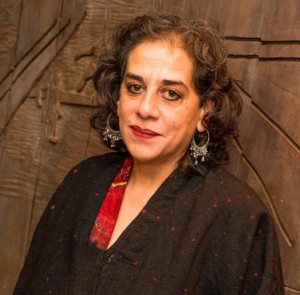By Warscapes
Speaking before members of the international press gathered in Mogadishu on January 29, 2015, Philippe Lazzarini, United Nations humanitarian coordinator for Somalia, called on the international community to act in order to prevent a repeat of the famine of 2011 in Somalia. “About 731,000 Somalis face acute food insecurity, the vast majority internally displaced people, while an additional 2.3 million people are at risk of sliding into the same situation,” Lazzarini told the press. The UN estimates that approximately $863 million is needed to save Somali lives. It is in the backdrop of Somalia’s ongoing food insecurity that Kenyan writer and journalist Rasna Warah recently published her controversial new book War Crimes: How warlords, politicians, foreign governments and aid agencies conspired to create a failed state in Somalia. The book is a scathing indictment of the United Nations, Western NGOs, violent warlords and Somali leaders who have long been accused of using international aid as their personal slush fund. War Crimes is not Rasna Warah’s first foray into the labyrinthine world of the international aid industry. In 2008, she edited an anthology called Missionaries, Mercenaries and Misfits, a critical exploration of the “development machine” from the perspectives of Africans. In 2011, she published Mogadishu Then and Now, a pictorial tribute to the lost splendor of Somalia’s capital before the civil war and contrasts it with the devastation that has characterized the city since 1991. Warscapes recently interviewed Rasna Warah about her controversial new book on Somalia and her fascination with the country, whose people she says have long been the victims an “unholy alliance” between corrupt leaders, Western NGO’s and an international media that enables them.

Warscapes: Rasna Warah, you’ve written extensively about Somalia. What’s the fascination the country holds for you?
Rasna Warah: I never started out intending to write books about Somalia. I didn’t have a particular interest in the country until around July 2011, when a famine of “catastrophic proportions” in the Horn of Africa was declared by the United Nations. At that time, a Somali agricultural economist contacted me and made a convincing argument about why it was highly unlikely that there was a famine in southern Somalia, as the UN claimed, as that region was the breadbasket of Somalia and had even experienced a bumper harvest the previous year. I then began investigating the story by talking to various people within and outside the UN who had worked in Somalia or who had projects there, and concluded that the famine had been exaggerated. It occurred to me that the international media and aid organizations were united in an unholy alliance where stories of piracy, famine and terrorism dominated the narrative about Somalia, while politicians begged for more aid – which was inevitably diverted to militias or just stolen outright – thereby contributing to further conflict and under-development in the country.
Warscapes: The full title of your most recent book is War Crimes: How Warlords, Politicians, Foreign Governments and Aid Agencies Conspired to Create a Failed State in Somalia. The term “war crimes” is pretty loaded. It carries so much historical baggage. Why that particular title? What were you trying to convey?
RW: I realize that the term “war crimes” is pretty loaded, but the happenings in Somalia in the last two decades are nothing short of crimes against humanity. Since 1991, and some would argue even before inter-clan warfare, massacres of vulnerable and weak clans, massive theft of donor aid, destruction of public institutions and blatant disregard for international laws have caused untold misery in Somalia. None of the warlords and politicians who caused this mayhem have been charged by any local or international court for these crimes. Some of these notorious warlords actually live in comfort in Nairobi, where they are seen as heroes by their clan members, and given refuge by the Kenyan state. The international community added to the mayhem by taking sides and pitting one warlord or clan against another, and by continuing to give aid to corrupt politicians. By naming these criminal and destructive activities as “war crimes,” I hoped to end the perception that violence, mass displacement and corruption are inevitable consequences of civil war, and that no one should be held accountable for the atrocities committed.
Warscapes: If I might play the devil’s advocate for a moment, The United Nations, foreign governments and aid agencies have certainly made huge mistakes, and they often have their own agendas vis-a-vis Somalia. But do you really believe, as the title of your book suggests, that they have actually conspired to create a failed state in Somalia?
Read more: Rasna Warah on War Crimes and Misdemeanors
Source: Warscapes


